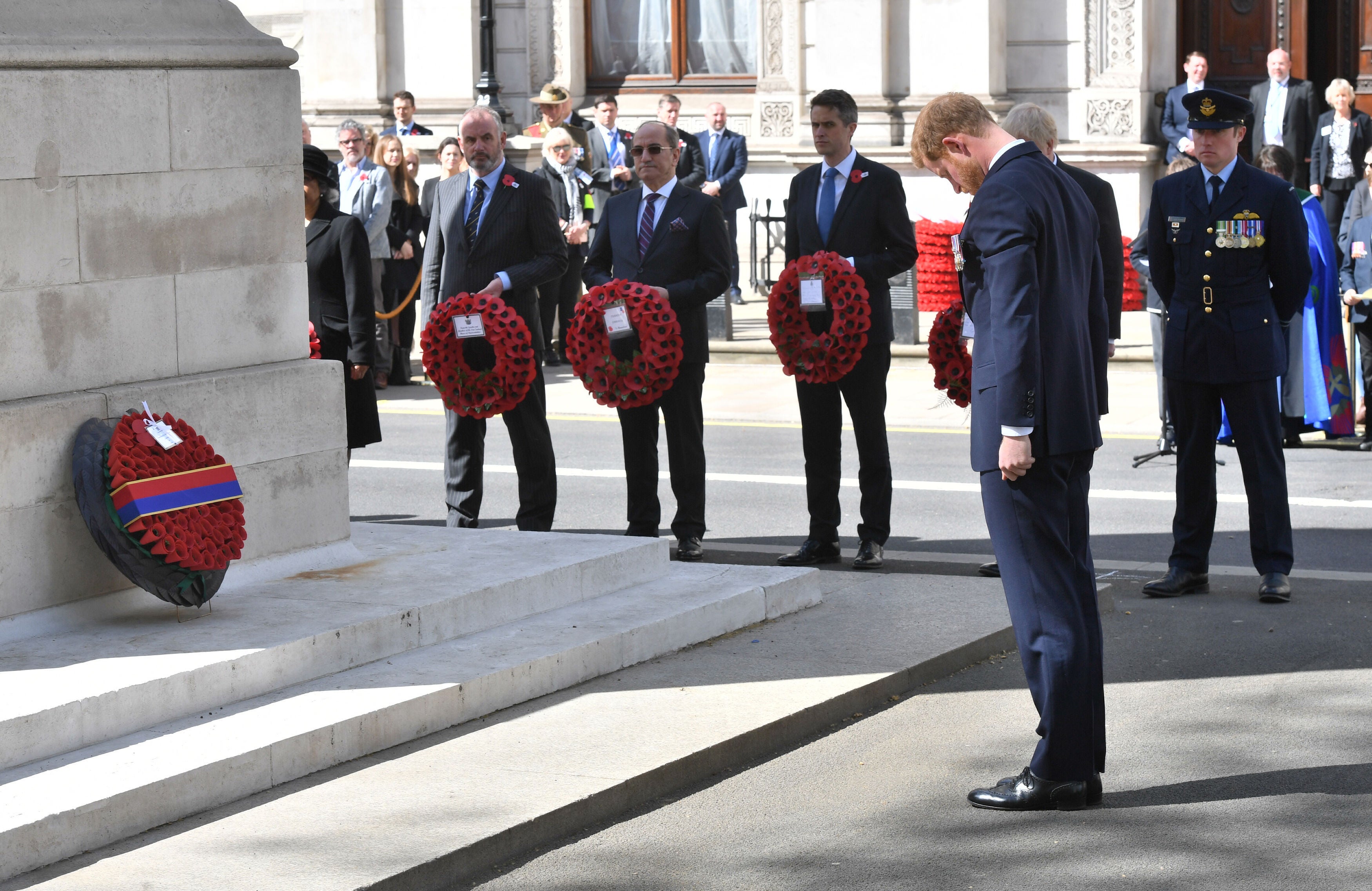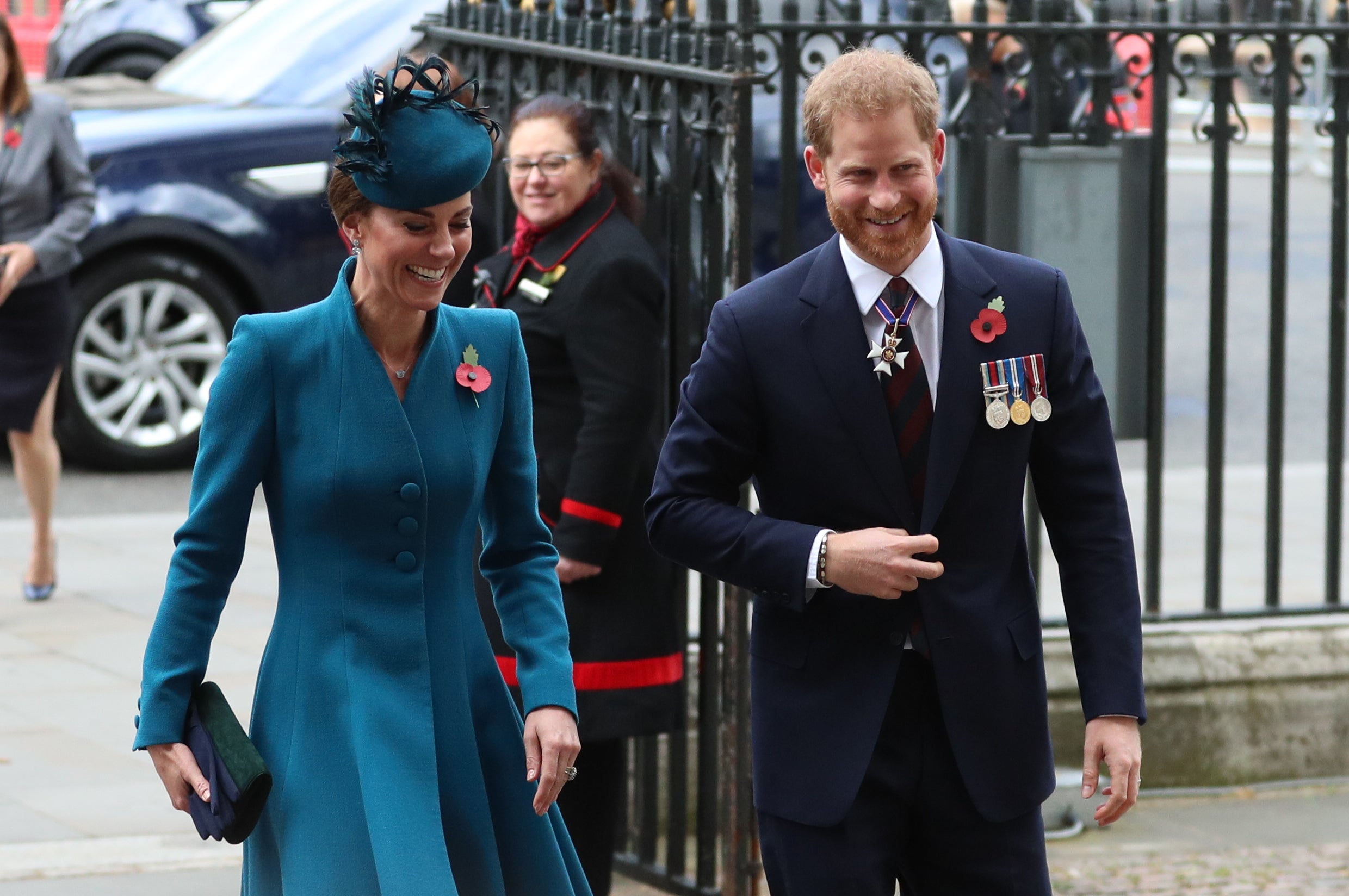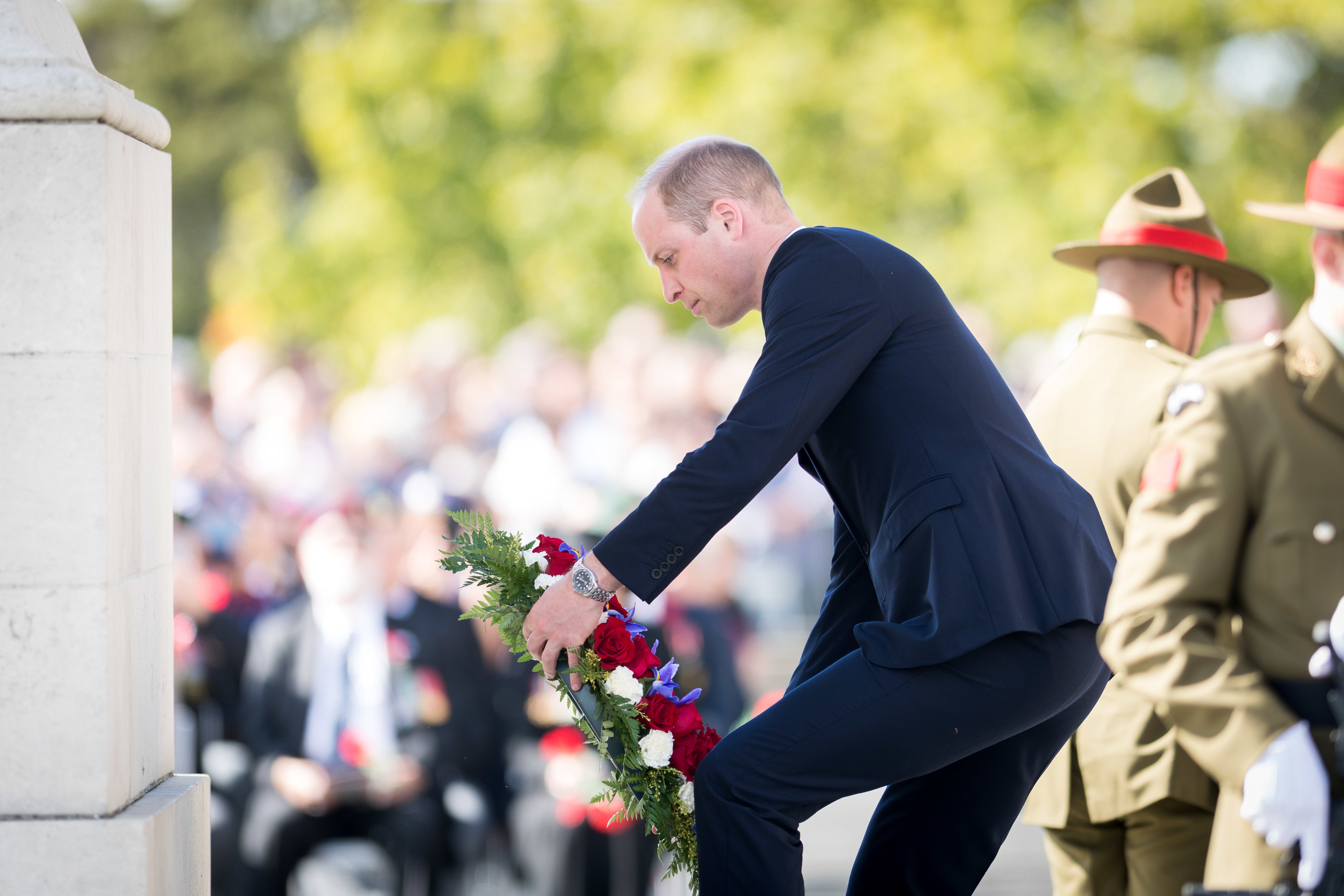
The Duke of Cambridge is to lay a wreath on behalf of the Queen at this year’s Anzac Day ceremony at the Cenotaph.
William, second in line to the throne, will also remember Australians and New Zealanders who have lost their lives in conflict by attending a service of thanksgiving in Westminster Abbey, Kensington Palace announced.
The two events fall on April 25, and will follow a dawn service at Wellington Arch at London’s Hyde Park Corner which will be attended by the Queen’s cousin the Duke of Gloucester.

Some 300 to 400 former and serving military personnel and their families, and members of veterans associations, will gather at the Cenotaph for the wreath laying.
The traditional church service in the abbey will feature an address by the Dean of Westminster, readings from the New Zealand and Australian High Commissioners, prayers read by children of each country, and a Maori waiata performed by the Ngati Ranana London Maori Club.
It has become customary for other members of the family to lay the wreath on the Queen’s behalf in recent years.
The Duke of Sussex did so in 2016 and 2018, and attended the abbey service with his sister-in-law the Duchess of Cambridge in 2019 just days before the birth of his son Archie.

William marked Anzac Day in 2021 by sending a message to the New Zealand and Australian High Commissions in London, saying: “Today we stand together to reflect not only on their sacrifices, but also their courage, sense of duty, and their famously indomitable spirit.”
The duke was on a two-day trip to New Zealand in 2019 to honour the victims of the Christchurch terrorist attack, and laid a wreath during an Anzac Day memorial service in Auckland.
The Princess Royal attended last year’s dawn service and the gathering in the abbey.
April 25 commemorates the anniversary of the start of the First World War Gallipoli landings, and is a national day of remembrance for Australia and New Zealand.

Thousands of Anzac troops – Australian and New Zealand Army Corps – died in the ill-fated 1915 Gallipoli campaign.
Waves of Allied forces launched an amphibious attack on the strategically important Turkish peninsula, which was key to controlling the Dardanelles straits, the crucial route to the Black Sea and Russia.
But the plan backed by Winston Churchill was flawed and the campaign, which faced a heroic defence by the Turks, led to stalemate and withdrawal eight months later.
Its legacy is the celebration of the “Anzac spirit” – courage, endurance, initiative, discipline and mateship – shown by the Antipodean troops.







